- Home
- Alison Weir
Eleanor of Aquitaine Page 2
Eleanor of Aquitaine Read online
Page 2
It was rare, however, for a woman to exercise political power. Eleanor of Aquitaine and her mother-in-law the Empress Matilda were among the few notable exceptions, unique in their time. The fact remained that the social constraints upon women were so rigidly enforced by both Church and state that few women ever thought to question them. Eleanor herself caused ripples in twelfth-century society because she was a spirited woman who was determined to do as she pleased.
* * *
Eleanor of Aquitaine was heiress to one of the richest domains in mediaeval Europe. In the twelfth century, the county of Poitou and the duchies of Aquitaine and Gascony covered a vast region in the southwest of what is now France, encompassing all the land between the River Loire in the north and the Pyrenees in the south, and between the Rhone valley and the mountains of the Massif Central in the east and the Atlantic Ocean in the west.
In those days the kingdom of France itself was small, being centred mainly upon Paris and the surrounding area, which was known from the fourteenth century as the lie de France; yet its kings, thanks to the legacy of the Emperor Charlemagne, who had ruled most of northern Europe in the eighth century, were overlords of all the feudatories in an area roughly corresponding to modern France.
Poitou was the most northerly of Eleanor's feudatories: its northern border marched with those of Brittany, Anjou, and Touraine, and its chief city was Poitiers. Perched on a cliff, with impressive ramparts, this was the favourite seat of its suzerains. To the east was the county of Berry, and to the south the wide sweep of the duchy of Aquitaine, named "land of waters" after the great rivers that dissected it: the Garonne, the Charente, the Creuse, the Vienne, the Dordogne, and the Vezere. The duchy also incorporated the counties of Saintonge, Angouleme, Perigord, the Limousin, La Marche, and the remote region of the Auvergne. In the south, stretching to the Pyrenees, was the wine-producing duchy of Gascony, or Guienne, with its bustling port of Bordeaux, and the Agenais. All these lands comprised Eleanor's inheritance.
It was a rich one indeed, wealthier than the domain of its overlord, the King of France. "Opulent Aquitaine, sweet as nectar thanks to its vineyards dotted about with forests, overflowing with fruit of every kind, and endowed with a superabundance of pasture land," enthused one chronicler, Heriger of Lobbes. Ralph of Diceto wrote that the duchy "abounds with riches of many kinds, so excelling other parts of the western world that it is considered by historians one of the most fortunate and prosperous provinces of Gaul."
The region boasted a temperate climate, and its summers could be very warm. It was a land of small walled cities, fortified keeps, moated castles, wealthy monasteries, sleepy villages, and prosperous farms. Its houses were built with white or yellow walls and red-tiled roofs, as many still are today. To the east and south, the land was hilly or mountainous, while fertile plains, high tors, and dense woodland were features of Poitou and Aquitaine, and flat sandy wastes and scrubland characterised Gascony.
The people of Aquitaine, who were mostly of Romano-Basque origin, were as diverse as its scenery. In the twelfth century, The Pilgrim's Book of Compostela described the Poitevins as handsome, full of life, brave, elegant, witty, hospitable, and good soldiers and horsemen, and the natives of Saintonge as uncouth, while the Gascons-- although frivolous, garrulous, cynical, and promiscuous-- were as generous as their poverty permitted. In fact, the whole domain was merely a collection of different lordships and peoples with little in common, apart from their determination to resist interference by their overlord, the Duke.
Most people in Aquitaine spoke the langue d'oc, or Provencal, a French dialect that derived from the language spoken by the Roman invaders centuries before, although there were a number of local patois. North of the River Loire, and in Poitou, they spoke the langue d'oeil, which to southerners seemed a different language altogether. Eleanor of Aquitaine probably spoke both dialects, although it appears that the langue d'oc was her mother tongue.
The Aquitanian lordships and their castles were controlled by often hostile and frequently feuding vassals, who paid mere lip service to their ducal overlords and were notorious for their propensity to rebel and create disorder. These turbulent nobles enjoyed a luxurious standard of living compared with their unwashed counterparts in northern France, and each competed with his neighbour to establish in his castle a small but magnificent court. Renowned for their elegance, their shaven faces and long hair, the Aquitanian aristocracy were regarded by northerners as soft and idle, whereas in fact they could be fierce and violent when provoked. Self-interest was the dominant theme in their relations with their liege lords: successive dukes had consistently failed to subdue these turbulent lords or establish cohesion within their own domains.
The authority of the dukes of Aquitaine held good, therefore, only in the immediate vicinities of Poitiers, their capital, and Bordeaux. Although they claimed descent from Charlemagne and retained his effigy on the coinage of Poitou, they did not have the wealth or resources to extend their power into the feudal wilderness beyond this region, and since their military strength depended upon knight service from their unruly vassals, they could not rely upon this. Consequently, Aquitaine lagged behind northern France in making political and economic progress.
Nevertheless, the duchy was wealthy, thanks to its lucrative export trade in wine and salt, and it was a land in which the religious life flourished. Its rulers erected and endowed numerous fine churches and abbeys, notably the famous abbey at Cluny-- "a pleasaunce of the angels"1-- and the Aquitanian Romanesque cathedrals in Poitiers and Angouleme, built in a style typified by elegant archways with radiating decoration and lively but grotesque sculptures of monsters and mythical creatures.
In the first century B.C. the Romans had founded Aquitania as a province of Gaul; vestiges of Roman culture and civilisation were still evident in the twelfth century. At the time of the Merovingian kings of France (A.D. 481-751), Aquitaine became an independent duchy. In 781 Charlemagne had his young son Louis crowned King of Aquitaine by the Pope, and appointed a council of nobles to govern in his name. By 793 the renowned warrior William of Orange, Count of Toulouse, had emerged as their leader, although in that year he was soundly defeated by the Moors of Spain during their last attempt to extend their Moslem empire north of the Pyrenees. A brave and devout man, of whom epic chansons de geste (songs of deeds) were written, William retired to the abbey of Gellons near Montpelher, where he later died. In 1066 he was canonised and his burial place was renamed Saint-Guilhelm-le-Desert.
Aquitaine remained a nominal kingdom until 877, but as Charlemagne's empire fragmented, so its status declined, and it was soon the subject of intense rivalry between the counts of Poitiers and Toulouse, who both wished to rule what was now the duchy of Aquitaine. By the middle of the tenth century, Ebalus, Count of Poitou, a distant cousin of William of Orange, had emerged victorious.2
Eleanor "sprang from a noble race."3 Ebalus's son, William III (called "Towhead"), a wealthy, able, and devout ruler, was blessed with a capable wife, Adela of Normandy. She was the first of a number of strong-minded women in the ducal family tree. Like his famous namesake, William III also retired to a monastery, dying in 963.
His son, William IV, nicknamed "Fierebras" (Strong Arm), was of a more volatile temperament. Married to another woman of character, the pious Emma, sister of Hugh Capet, King of the Franks, he so offended her sensibilities by overindulging in hunting and women that she left him twice-- but not before wreaking her vengeance on his paramours. Finally bowing to pressure, he withdrew to a monastery around 996, leaving Emma to rule in the name of their son, William V, the Great.
Fortunately, William V took after his mother, who remained in power until her death in 1004. Well-educated, he was interested in the teachings of scholars from the cathedral schools of Blois, Tours, and Chartres; he founded a similar school at Poitiers Cathedral, collected books, and promoted learning at his court at Poitiers, already the leading centre of southern culture. He established good relations an
d alliances with his feudal neighbours and with the Church, and made several pilgrimages to Rome. He, too, married a formidable woman: his third wife, Agnes of Burgundy, was another such as his mother had been.
William V died in 1030. He was succeeded in turn by the three sons of his former wives, William VI (reigned 1030-1038), Eudes (reigned 1038-1039), and William VII, the Brave (reigned 1039-1058). The latter was "truly warlike, second to none in daring, and endowed with foresight and abundant wealth," yet although he was "eager for praise, pompous in his boastful arrogance" and enjoyed a "great reputation,"4 he suffered a miserable defeat at the hands of Geoffrey Martel, Count of Anjou, in 1042.
William VII was succeeded by his father's son by Agnes of Burgundy, Guy Geoffrey, who took the title William VIII. Despite the fact that she was now married to Geoffrey Martel, Agnes continued to exert her will over her son and his court, until her retirement to a nunnery in 1068. Yet William VIII was an energetic and dynamic ruler; by 1063, he had annexed Saintonge and Gascony to Aquitaine, thereby increasing the duchy's importance and power in western Europe. It was for a time sufficiently peaceful for its Duke to depart to fight the Moors in Spain. His victory at Babastro was still being celebrated in the chansons de geste of the twelfth century.
William's first two wives were barren, so he took a third, Audearde of Burgundy, twenty-five years his junior and related to him within the forbidden degrees of consanguinity. Their son, William, born in 1071, was not legitimated until the father had personally visited Rome and obtained the Pope's blessing on his marriage.
William VIII died in 1086, when his son was just fifteen. William IX, Eleanor's grandfather, was a handsome and courteous, yet complex and volatile man who is regarded by historians as the first of the troubadours.
Romantic literature flourished in the twelfth century, particularly in Aquitaine and Provence. The chansons de geste tended to celebrate military ideals of courage in battle, loyalty, honour, and endurance, as well as legendary heroes such as Charlemagne, Roland, and King Arthur, while the romantic poems and lais (lays) sang of love.
It was the poets of the south, the troubadours, who popularised the concept of courtly love, revolutionary in its day. Drawing on ideas from Plato and from Arab writers, and influenced by the growing popularity of the cult of the Virgin Mary, these poets composed their lyric poetry and rather complex songs in the mellifluous langue d'oc and accompanied them with the music of rebec and viol, fidel and bow, pipe and tabor (tambourine). They deified women, according them superiority over men, and laid down codes of courtesy, chivalry, and gentlemanly conduct. These precepts were to be echoed in the lays of the trouueres of northern France, who wrote in the langue d'oeil. Thus were born ideals of honour and courtship that in the centuries to come would permeate European literature and culture to such a degree that their influence is still with us today.
Under the rules of courtly love, the mistress, who is an idealised figure, often high-born and even married, remains unattainable to her humble, worshipping suitor, who must render her homage and prove his devotion and loyalty over a period of time before his love is even acknowledged. In this aristocratic game-- for such it was-- the woman always had the upper hand and set the pace and tone of the relationship. Her wishes and decrees were absolute, and any suitor who did not comply with them was deemed unworthy of the honour of her love. There was an underlying eroticism to these precepts, for it was tacitly understood that the persistent lover would one day have his hoped-for reward.
The ideals of courtly love were at breathtaking variance with contemporary notions of courtship and marriage, and there were many-- Henry II among them-- who regarded these newfangled ideas as subversive and pernicious. They were taken most seriously in the relaxed cultural atmosphere of southern France, where they evolved as an absorbing intellectual pastime of the upper classes, while in the more sober north, courtly love was often seen merely as an excuse for adultery.
The age of the troubadours ended in the early thirteenth century with the vicious persecution of the Cathar heretics in what became known as the Albigensian Crusade. Culminating in the holocaust at Montsegur, this left southern France so devastated that its native culture, which had flourished under the auspices of Eleanor of Aquitaine and her forebears, was effectively suppressed and, in many cases, irrevocably lost.
Duke William IX was intelligent and gifted, artistic and idealistic, with an insatiable thirst for sensual passion and adventure. His verses are erotic and occasionally blasphemous, and when coupled with his amoral behaviour, they succeeded-- unsurprisingly-- in offending the sensibilities of the Church.
He began his reign well enough, quickly establishing himself as a capable and respected ruler and styling himself "Duke of the Entire Monarchy of the Aquitanians." In 1088 he married Ermengarde, the beautiful daughter of Fulk IV, Count of Anjou, but it was not long before she began to have violent mood swings and to manifest the symptoms of what was possibly manic depression or schizophrenia. As there were no children of the marriage, William had no difficulty in getting it annulled. Ermengarde then married the Count of Brittany, and William, in 1094, went off to Aragon in serious pursuit of King Sancho Ramirez's nineteen-year-old widow, Philippa.
Philippa was heiress to the county of Toulouse, which bordered Gascony in the south and was regarded by William as a desirable addition to his domains, since within it lay the important trade routes that linked Aquitaine with the Mediterranean. A great-niece of William the Conqueror, King of England, Philippa was a spirited lady in the tradition of the duchesses of Aquitaine: pious, high-minded, strong-willed, and of sound political judgement.
Her father, William IV of Toulouse, after bestowing her in marriage, had gone on a pilgrimage to the Holy Land, leaving his brother, Raymond, Count of Saint-Gilles, as regent of his duchy. But when William died five years later, Raymond, ignoring Philippa's right of inheritance, usurped her title. She was therefore anxious to marry a man with the political power and resources to recover Toulouse for her, and she accepted William of Aquitaine with alacrity.
The early mediaeval period was an age of great religious fervour, when thousands of men and women went on long and dangerous pilgrimages to holy, shrines, such as that of St. James at Compostela, St. Peter's in Rome, or even to the Holy Land itself, where was to be found the most sacred shrine of them all, Christ's burial place, the Church of the Holy Sepulchre.
Since A.D. 640, Palestine had been under Arab rule. In 1095 Pope Urban II preached the First Crusade, in the hope of liberating Jerusalem from the Infidel. William IX considered taking the Cross at this time, but thought better of it. It was Raymond of Toulouse who, in 1096, led an army of 100,000 crusaders to the East, having first renounced his claim to Toulouse in favour of his son Bertrand. In 1098 William marched into Toulouse and successfully laid claim to it, incurring the anger of the Church by violating the Truce of God, which required all Christians to refrain from invading the lands of a crusader during his absence. The intercession of the Bishop of Poitiers successfully averted the threat of excommunication by the Popes but William's relations with the Church were thereafter strained.
In 1099 Philippa bore a son, called William the Toulousain after the place of his birth, and in the same year news of the taking of Jerusalem by the crusaders filtered through to Europe. This set Duke William thinking that perhaps he should have taken the Cross after all, so he mortgaged Toulouse to Bertrand to provide himself with men and funds, left Philippa as regent in Poitiers, and set off for Asia Minor. In 1101, at Heraclea, he watched from a hill, weeping, as his army was cut to pieces by the Turks. After that, he had no choice but to return home, although he lingered on the way to enjoy the exotic delights of the court of Antioch and visit the holy shrines of Jerusalem.
Back in Poitiers, inspired by the culture of the East and the erotic works of Ovid, he began writing poems6 in the Provencal dialect, with robust, sensual lyrics celebrating female beauty, carnal delights, and the pleasures of love. Eleven of hi
s works survive. Some are crude, portraying women as horses to be mounted or as wives chafing at the jealous vigilance of their husbands; others are melancholy. Nothing like them had been written since ancient times, and they caused a predictable stir, not least because William dared assert the unheard-of notion that a man should not demand love from a woman: it should be she who freely bestows it. Nevertheless, he openly admitted that he usually pursued a woman with only one end in view, and that most of his encounters ended with "my hands beneath her cloak."
It was not long before William's court at Poitiers became renowned throughout Europe for this new trend in literature; it was certainly, by the twelfth century, the foremost cultural centre in France.
For the next few years, as his family grew, the Duke remained in his domains, writing poems and fighting useless wars against his unruly vassals, which only served to weaken his position and strengthen theirs. Increasingly self-indulgent, he openly pursued women, even boasting that he would found an abbey for prostitutes near his castle at Niort. He was "brave and gallant, but too much of a jester," finding "pleasure only in one nonsense after another, listening to jests with his mouth wide open in a constant guffaw.''7 Not surprisingly, the Church and many of his more sober contemporaries were outraged by William's behaviour, while his wife maintained a dignified silence and turned increasingly to religion for solace.
Robert d'Arbrissel, founder of the Order of Fontevrault, was a Breton scholar and inspired teacher who wandered the roads of northwestern France with his growing band of followers. A large number were women, attracted by his enlightened and sympathetic view of the female sex, and by his compassion for the outcasts of society. His reputation quickly spread, and Pope Urban II recognised him as an apostolic preacher. Nevertheless, there were those who resented his assertion that women were in many respects the superior sex and made better administrators and managers of property than men. To his critics, this sounded like heresy.

 Richard III and the Princes in the Tower
Richard III and the Princes in the Tower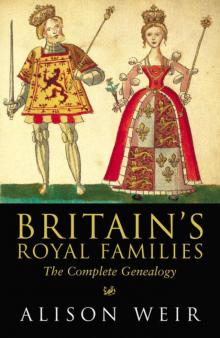 Britain's Royal Families: The Complete Genealogy
Britain's Royal Families: The Complete Genealogy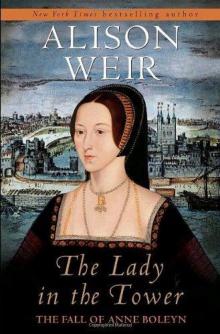 The Lady in the Tower: The Fall of Anne Boleyn
The Lady in the Tower: The Fall of Anne Boleyn Six Wives of Henry VIII
Six Wives of Henry VIII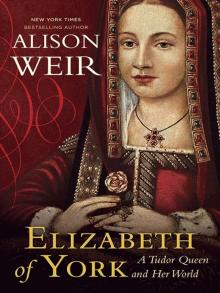 Elizabeth of York: A Tudor Queen and Her World
Elizabeth of York: A Tudor Queen and Her World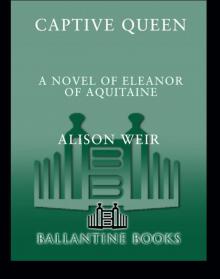 Captive Queen
Captive Queen Innocent Traitor
Innocent Traitor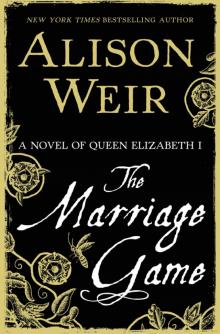 The Marriage Game
The Marriage Game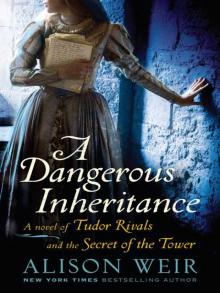 A Dangerous Inheritance
A Dangerous Inheritance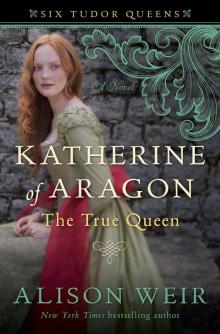 Katherine of Aragón: The True Queen
Katherine of Aragón: The True Queen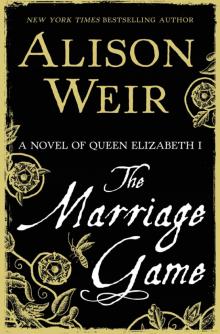 The Marriage Game: A Novel of Queen Elizabeth I
The Marriage Game: A Novel of Queen Elizabeth I Princes in the Tower
Princes in the Tower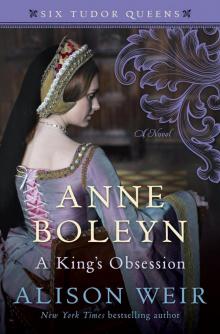 Anne Boleyn: A King's Obsession
Anne Boleyn: A King's Obsession Traitors of the Tower
Traitors of the Tower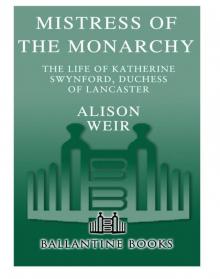 Mistress of the Monarchy: The Life of Katherine Swynford, Duchess of Lancaster
Mistress of the Monarchy: The Life of Katherine Swynford, Duchess of Lancaster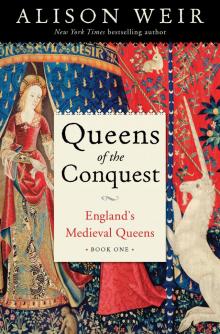 Queens of the Conquest: England’s Medieval Queens
Queens of the Conquest: England’s Medieval Queens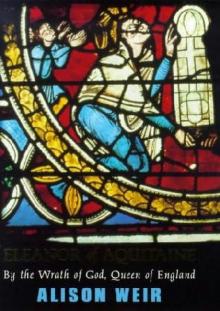 Eleanor of Aquitaine: A Life
Eleanor of Aquitaine: A Life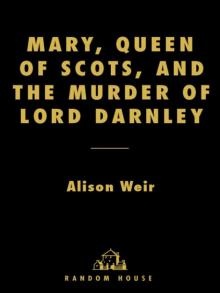 Mary, Queen of Scots, and the Murder of Lord Darnley
Mary, Queen of Scots, and the Murder of Lord Darnley Henry VIII: The King and His Court
Henry VIII: The King and His Court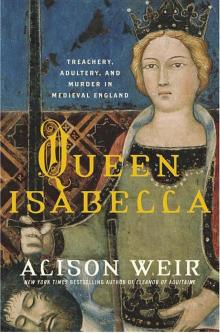 Queen Isabella: Treachery, Adultery, and Murder in Medieval England
Queen Isabella: Treachery, Adultery, and Murder in Medieval England Katheryn Howard, the Scandalous Queen
Katheryn Howard, the Scandalous Queen Arthur- Prince of the Roses
Arthur- Prince of the Roses The Wars of the Roses
The Wars of the Roses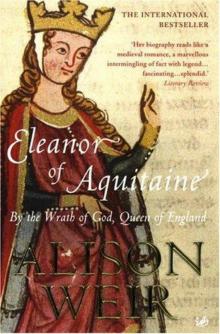 Eleanor of Aquitaine: By the Wrath of God, Queen of England
Eleanor of Aquitaine: By the Wrath of God, Queen of England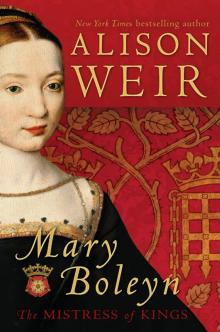 Mary Boleyn: The Great and Infamous Whore
Mary Boleyn: The Great and Infamous Whore Jane Seymour: The Haunted Queen
Jane Seymour: The Haunted Queen Anna of Kleve, the Princess in the Portrait
Anna of Kleve, the Princess in the Portrait Lancaster and York: The Wars of the Roses
Lancaster and York: The Wars of the Roses The Grandmother's Tale
The Grandmother's Tale The Princess of Scotland (Six Tudor Queens #5.5)
The Princess of Scotland (Six Tudor Queens #5.5) The Lady Elizabeth
The Lady Elizabeth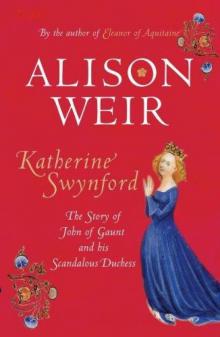 Katherine Swynford: The Story of John of Gaunt and His Scandalous Duchess
Katherine Swynford: The Story of John of Gaunt and His Scandalous Duchess The Curse of the Hungerfords
The Curse of the Hungerfords The Lost Tudor Princess: The Life of Lady Margaret Douglas
The Lost Tudor Princess: The Life of Lady Margaret Douglas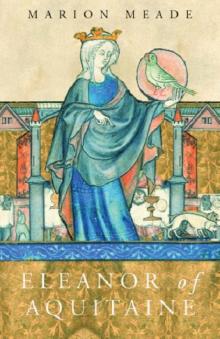 Eleanor of Aquitaine
Eleanor of Aquitaine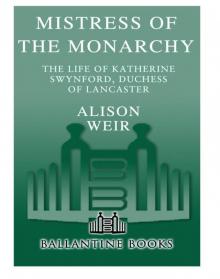 Mistress of the Monarchy
Mistress of the Monarchy The Lost Tudor Princess
The Lost Tudor Princess Henry VIII
Henry VIII Anne Boleyn, a King's Obsession
Anne Boleyn, a King's Obsession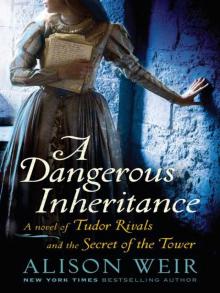 A Dangerous Inheritance: A Novel of Tudor Rivals and the Secret of the Tower
A Dangerous Inheritance: A Novel of Tudor Rivals and the Secret of the Tower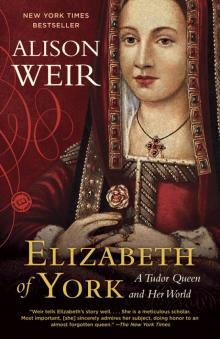 Elizabeth of York
Elizabeth of York Katherine of Aragon, the True Queen
Katherine of Aragon, the True Queen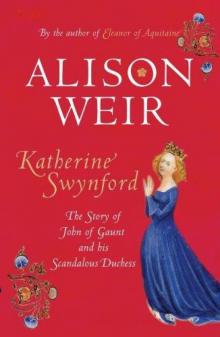 Katherine Swynford
Katherine Swynford Wars of the Roses
Wars of the Roses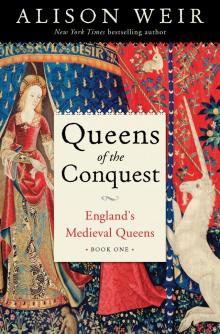 Queens of the Conquest
Queens of the Conquest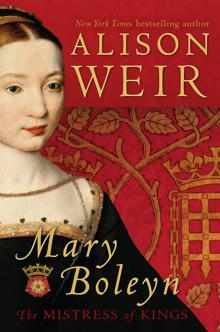 Mary Boleyn
Mary Boleyn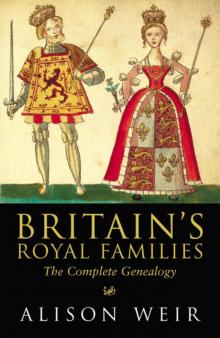 Britain's Royal Families
Britain's Royal Families The Tower Is Full of Ghosts Today
The Tower Is Full of Ghosts Today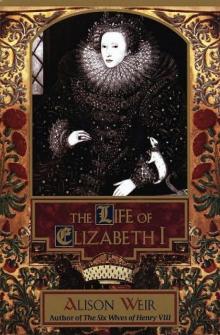 Life of Elizabeth I
Life of Elizabeth I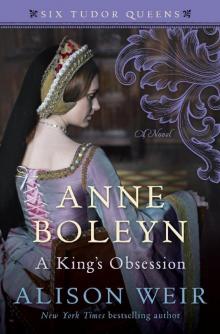 Anne Boleyn A King's Obssession
Anne Boleyn A King's Obssession Lancaster and York
Lancaster and York Jane Seymour, the Haunted Queen
Jane Seymour, the Haunted Queen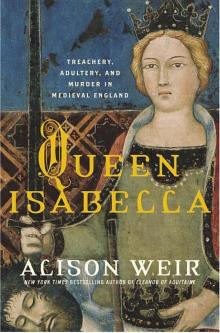 Queen Isabella
Queen Isabella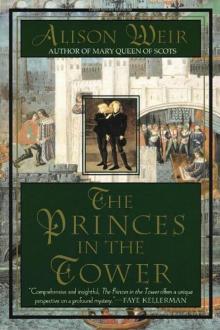 The princes in the tower
The princes in the tower